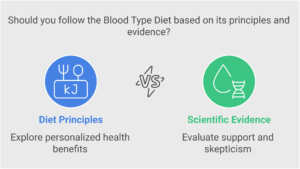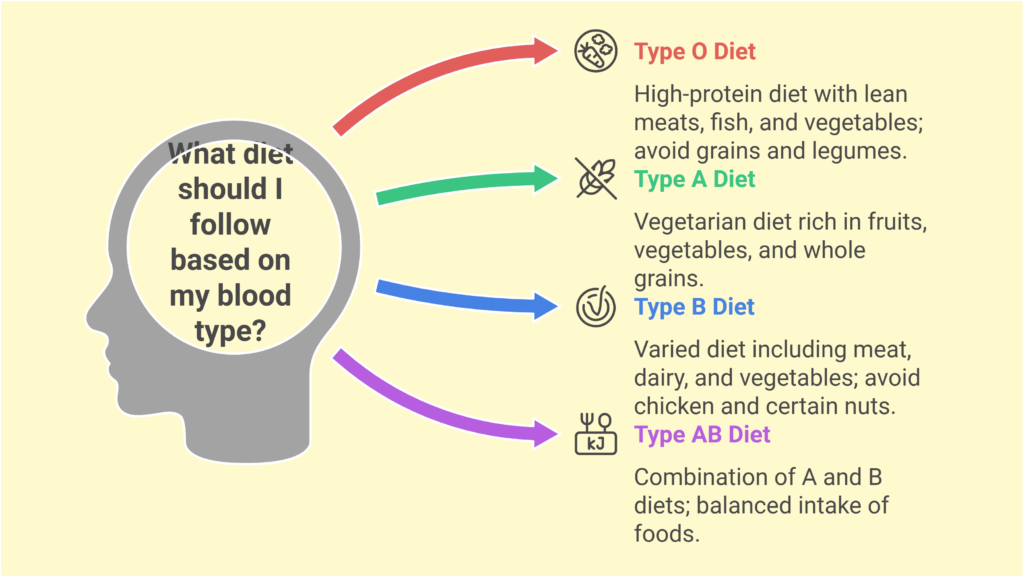The Blood Type Diet, popularized by Dr. Peter D’Adamo in his book “Eat Right 4 Your Type,” suggests that an individual’s blood type can determine the best dietary choices for optimal health. This document explores the principles behind the Blood Type Diet, its claimed benefits, and the scientific evidence supporting or refuting its effectiveness.

Understanding the Blood Type Diet
The Blood Type Diet categorizes foods into beneficial, neutral, and harmful based on an individual’s blood type: A, B, AB, or O. Each blood type is said to have specific dietary needs that can influence metabolism, digestion, and overall health. For example:
- Type O: Recommended to consume a high-protein diet with lean meats, fish, and vegetables while avoiding grains and legumes.
- Type A: Suggested to follow a vegetarian diet rich in fruits, vegetables, and whole grains.
- Type B: Encouraged to eat a varied diet including meat, dairy, and vegetables but to avoid chicken and certain nuts.
- Type AB: Advised to combine the diets of types A and B, focusing on a balanced intake of foods.

Claimed Benefits
Proponents of the Blood Type Diet claim various health benefits, including:
- Improved digestion and metabolism
- Weight loss and maintenance
- Enhanced energy levels
- Reduced risk of chronic diseases
- Better overall health and well-being
Scientific Evidence
Despite its popularity, the Blood Type Diet lacks robust scientific backing. Several studies have examined the relationship between blood type and diet, but the results have been inconclusive. Key points include:
- Lack of Clinical Trials: There are few well-designed clinical trials that support the specific dietary recommendations based on blood type.
- General Dietary Guidelines: Many of the foods recommended in the Blood Type Diet align with general healthy eating guidelines, which may explain anecdotal success rather than blood type specificity.
- Individual Variability: Nutritional needs can vary widely among individuals, and factors such as genetics, lifestyle, and personal health history often play a more significant role than blood type.
Conclusion
While the Blood Type Diet may resonate with some individuals and provide a structured approach to eating, the scientific evidence does not strongly support its efficacy. Those interested in dietary changes should consider consulting with a healthcare professional or registered dietitian to develop a personalized nutrition plan that takes into account their unique health needs and lifestyle. Ultimately, a balanced diet rich in whole foods is likely to be beneficial for most people, regardless of their blood type.












